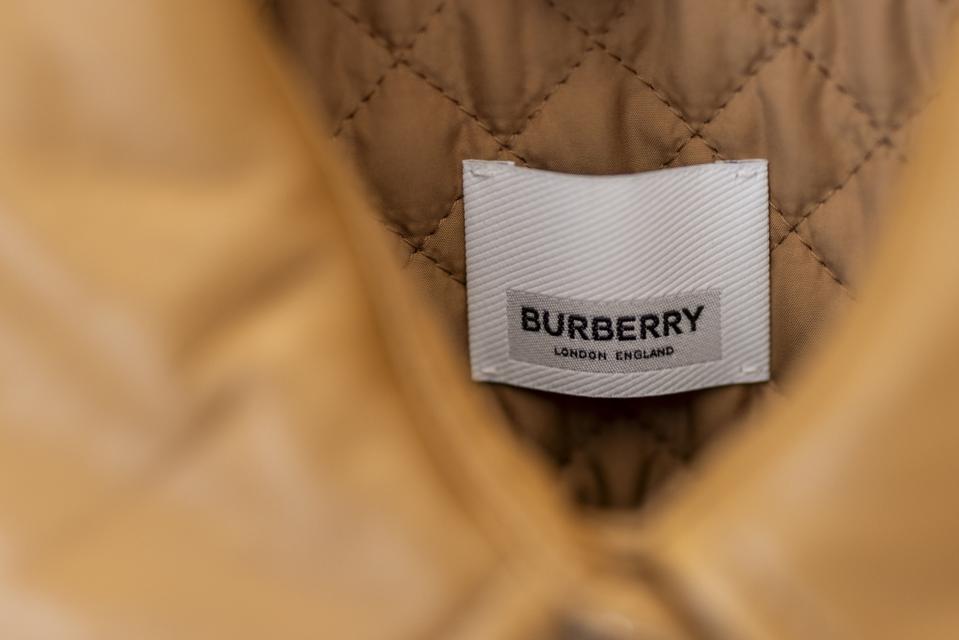Luxury fashion brand Burberry Group led the FTSE 100 lower on Thursday after warning that slowing sales could cause it to cut full-year forecasts.
At £16 per share, Burberry’s share price was 8% cheaper on the day.
It announced that revenues rose 4% during the 26 weeks to 30 September, to £1.4 billion. At constant exchange rates sales were up 7% from the same 2022 period.
However, sales slowed sequentially across its territories as broader demand for expensive fashions receded. Store sales rose just 1% between July and September compared with 18% in the prior three months.
Total store sales were up 10% year-on-year in the first half.
Pre-Warning
Burberry said that “we are confident in our strategy and remain committed to achieving our medium and long-term targets.”
However, it added that “the slowdown in luxury demand globally is having an impact on current trading. If the weaker demand continues, we are unlikely to achieve our previously stated revenue guidance for [financial 2024].”
The business has previously predicted low double-digit sales growth for the 12 months to March 2024.
Burberry added that that adjusted operating profit for the full year would come in at the lower end of its guided range (of £552 million to £668 million) should sales forecasts be trimmed.
Adjusted operating profit for the first half totalled £223 million. This was down 6% as a result of adverse currency movements. Stripping out foreign exchange changes profit were up 1% on an annual basis.
Fragile China
Burberry’s sales slowdown was especially severe in its largest market of Asia. Weakness in China meant that store sales growth in the region slowed to just 2% in quarter two versus 36% in the first quarter, taking growth for the full first half to 18%.
Chinese store sales dropped 8% in the final three months of the period, reversing after a 15% rise reported during quarter one.
Aggregated sales in its Europe, the Middle East, India and Africa (EMEIA) region rose 14% during the first half. Sales in The Americas slumped 9%.
Chief executive Jonathan Akeroyd said that “we made good progress against our strategic goals, executing our priorities at pace. We continued to build momentum around our new creative vision with the launch of our Winter 23 collection in September, the first designed by Daniel Lee.”
He added that “while the macroeconomic environment has become more challenging recently, we are confident in our strategy to realise our potential as the modern British luxury brand, and we remain committed to achieving our medium and long-term targets.”
Dimming Down
Analyst Sophie Lund-Yates of Hargreaves Lansdown commented that “the shine is dimming on the luxury sector as even higher end consumers tighten their belts. Heralded as a more resilient corner of the economy, suggestions of missing targets and lower-end profits aren’t what investors have come to expect and that has consequences for valuations.”
She added that “there could be further pressure to come before things improve, especially if a broader pull back in spending comes through in 2024 after the glut of festive trading.”

